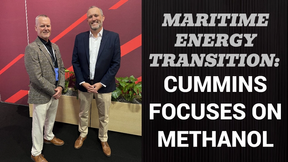American Club Reports Progress in 2012
The American Club reported solid progress on several fronts at the annual meeting of its members held in New York.
Despite many challenges, including those intrinsic in a struggling maritime sector hampered by anemic growth in global trade, the club made progress in many areas during 2012 and has started 2013 on a positive note.
Income came under pressure during the first half of 2012 as the retirement of older, higher-rated vessels and their replacement by newer, lower-rated ships, caused a reduction both in rates per ton and overall revenue by comparison with the position 12 months earlier.
While retained claims developed within expectations, extending the benign trends which began in 2010, International Group pool exposures were at a higher level than the previous year, the total aggregate value of claims on the pool at year-end 2012 being, at $369 million, nearly 60% up on the $231 million recorded for 2011 at the same point.
The club’s investments performed very well during the year to December 31, returning 7.6% overall, in line with the benchmark for the asset class blend represented by the portfolio.
Nevertheless, as a consequence of these conflicting currents, the club’s free reserves fell slightly at December 31, the statutory figure being just under $64 million, compared to $65 million 12 months earlier. Equivalent GAAP figures were just over $54 million at year-end 2012, compared to about $60 million at December 31, 2011.
However, at March 31, 2013, the statutory surplus had increased by 9% to nearly $70 million and the GAAP surplus by 13% to over $61 million.
Rise in Tonnage and Premium
The tonnage and premium trends seen during 2012 have also reversed themselves since the beginning of the year. Tonnage has risen by over 5% during the three months since the February renewal to the end of May, premium having increased by a similar margin. Encouragingly, claims development is broadly tracking the three earlier years at a similar stage, resulting in an uplift of free reserves per entered ton from $3.50 at year-end 2012 to $4.00 at March 31, 2013, a 14% rise.
The club was also able to announce the formal closure of the 2010 policy year, the more than $16 million surplus for the year being transferred to its contingency account.
The club’s chairman, Arnold Witte of Donjon Marine Co. Inc., said: “2012 was yet another challenging period for both the shipping industry in general and the IG clubs in particular. Clubs do not exist in a vacuum independent of the fortunes of the maritime community they serve. The American Club remains committed to an exceptional level of solidarity with its members, knowing that, in these especially difficult times, providing sympathetic and dedicated service acquires a special importance.”
New Policy Year Starts Strongly
Joe Hughes, chairman and ceo of the club’s managers, SCB, Inc., expanded on Mr. Witte’s remarks: “Notwithstanding a difficult business environment, 2012 was a respectable year for the American Club. While there was pervasive pressure on premium pricing, we continued our policy of prudent underwriting. Although IG pool exposures remained high, the club’s own claims developed within expectations, while investment returns were very good.”
He continued, “The club has made a strong start to 2013. Free reserves have grown substantially over the first quarter. Tonnage and premium have also increased, reversing the trends of 12 months ago. The way ahead is full of promise. We will maintain a disciplined approach to risk selection and rating, and will continue to place emphasis on loss prevention and claims control.
“We will engage in prudent, focused diversification into new business sectors such as the Eagle Ocean Marine fixed-premium facility which continues to perform well, with steady year-on-year development and encouraging claims results to date.
“As we look towards the club’s centennial in 2017, our business plan anticipates the exciting opportunities which lie ahead. We will exploit them in a spirit of deep solidarity with our members and other business partners.”













